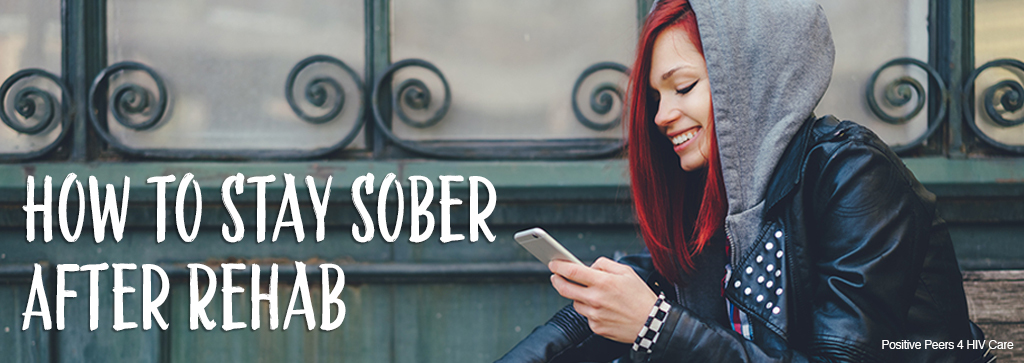
By: Jennifer McMillen Smith, MSSA, LISW-S, Division of Infectious Disease and medically reviewed by Ann Avery, Infectious Disease Physician at Metrohealth Medical Center
We’ve discussed going to rehab (read also: How to Tell Your Loved Ones You're Going to Rehab). Now, we want to focus on staying sober after rehab.
You are not alone. We at MetroHealth are here and will gladly connect you with whatever resources we have to support you in your journey. One resource is Alcoholics Anonymous. Alcoholics Anonymous is an international fellowship of people who have had a drinking problem. It is nonprofessional, self-supporting, multiracial, apolitical, and available almost everywhere. There are no age or education requirements. Membership is open to anyone who wants to do something about their drinking problem.
Tips for Staying Sober
Our goal is to provide several ways for you to be re-centered following a rehab stay. Thanks to Alcoholics Anonymous, here are a few tips that might be helpful:
Make a post-rehab plan, and share it.
Nothing is written in stone, but a post-rehab plan can serve as a roadmap to maintaining sobriety and getting back on track. Write it down. Often, when we write our goals down on paper, we’re more committed to seeing them happen. You can share with a friend, loved one, and a sponsor. This creates accountability. The plan can include things like who to call if you feel like drinking or using drugs, a list of 12 step meetings and other support groups you can attend each day of the week, and setting aside a time to meditate every evening before bed.
Gather your team.
This is your support system — your lifeline. These are the people who have shown they care about you and your well-being. They have an actual track record of supporting you, not enabling. These are the people you should share your post-rehab plan with. Ask them to hold you accountable for it.
Start small.
Everything takes time. ⏳ Don’t rush anything. Be deliberate but also be easy on yourself. Try to develop healthier habits like exercise, team sports, and meditation. 🏃🏽♂️ Try to drink lots of water. Stretching helps too. Those small things always add up.
Think of your living situation.
Where you literally lay your head each night should be considered seriously. 🏡 As you know, your living environment can make a difference. If you can, work with your support team to plan ahead and make your post-rehab transition easier with less stress but with increased encouragement. 👏🏿👏🏿👏🏿 Having a sober home – or at least a sober space within your home – can be super important.
Consider potential triggers.
Is it a certain person or place? Is it a situation that you just know will get off of your routine? Some people get triggered on payday. Stress can be a big trigger. We all have triggers. 😩 What’s most important is knowing what most of yours are and planning how to respond beforehand. That way, you can respond in a way that honors you and the work you’ve put into yourself. Cue deep breath. 🧘🏽♀️
Create routines and structures for each day.
Set an alarm ⏰ so you get up around the same time each morning – it’s a good idea to have a consistent bedtime too. 😴 Shoot for exercising for 30 minutes each day. Eat lunch and go for a walk. These routines give our day structure. We’re not so easily blown in the wind when we have schedules and activities planned out ahead of time. These routines can also include checking in with people from your support team and attending 12-step or other sober meetings.
Celebrate yourself and your milestones.
You’re here. You’re alive. And you’re worthy of celebration. 🎉 Find new ways – healthier ways – to celebrate you and the work you’ve done. It hasn’t been easy. Don’t forget the small victories because they will add up to be major victories. 🙌🏻
We’re human and have our issues. No one is perfect. Even the great people in our lives who we cherish have their own problems. If you think you have a problem and decide to work on that problem, that’s a clear sign of strength 💪🏾 – not a weakness. If you’re thinking of going to rehab for an addiction, we support and respect you and your decision. We want you to know you’re taking good care of yourself by seeking support. 👍🏾
If you think you need support after going to rehab, please check out AA Cleveland or whichever AA office is closest to you. And remember, you’re strong and capable of hard things. It’s time to believe in yourself as we (and others) believe in you! 💜
Are you still deciding whether or not to go to rehab? It can be a big decision! Read our blog, How to Pay for Rehab.